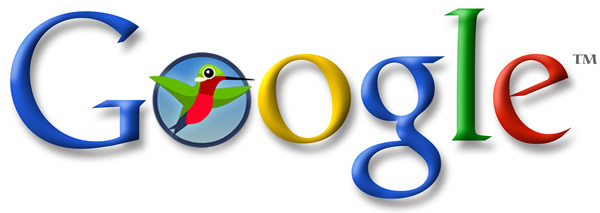The largest search engine in the world is updating, the company announced on Thursday at a special event in the garage where Google was born. Google tied the news to its 15th birthday and announced a new search algorithm, “Hummingbird.” It’s named Hummingbird due to it being fast and precise, according to Google. Google began using the new algorithm a month ago.
- What’s a “search algorithm?”
It’s an Internet technology term for the system Google uses to sort the billions of web pages and other information it has when a browser searches for something. The search algorithm returns the search result with what it believes are the best matches. - Is the “PageRank algorithm” dead?
No. PageRank is one of over 200 major factors that go into the Hummingbird algorithm. Hummingbird looks at PageRank — how important links to a page are deemed to be — along with other factors. - Is Penguin, Panda and other “updates” obsolete?
No. Panda, Penguin and other updates were changes to parts of the old algorithm. Hummingbird is a replacement algorithm, although it continues to use some of the same parts, like Penguin and Panda. Some of the parts are working well and kept. Other parts are constantly being replaced. Google says that Hummingbird uses both existing and new parts, organized to better serve today’s search demands. - What type of search demands does Hummingbird help?
In May, Google announced “conversational search.” The technology allows people to speak searches on their devices. You can talk to Google in a more natural way using a mic and get responses spoken back to you on Android, iPhone, and iPad devices.Hummingbird should offer more precise search findings behind the spoken words, according to Google. It should better understand that “place” means you want a brick-and-mortar store or location, for example. The goal is for Hummingbird to go beyond simply finding pages with matching words.Hummingbird will focus on each word in a query, ensuring that the whole sentence or conversation or meaning is considered in the search rather than particular words. - What does Hummingbird mean for SEO?
Google says nothing has changed for SEO publishers. The best practice of having original, high-quality content remains. - Will my website lose ranking due to Hummingbird?
Since Hummingbird went live a month ago, if you were having problems with ranking, you would know by now. Hummingbird should improve particularly complex queries rather than effect “head” terms that could cause a major shift in traffic.If you did lose traffic, it could be the new algorithm, but remember that the algorithm parts are constantly being changed and improved. To date, there’s been no significant news from publishers that rankings have been lost. - What are examples of the improved search through Hummingbird?
A search for “pizza hut calories per slice” used to list an answer like this, Google said, but not one from Pizza Hut. Now, it lists this answer directly from Pizza Hut itself, Google says. - When’s the last time Google replaced its algorithm?
It’s been over a decade since Google had a major algorithm replacement for sorting through the search engine information. Tweaking of its algorithm parts has been constant, and will continue to be. In 2010, Google had the “Caffeine Update,” but that was to better gather information (indexing).


SEO writer says
To say that nothing has changed for SEO is perhaps only partially true. The fact is that it becomes much more important for SEO to think of all the questions a possible client/visitor/subscriber might have, make sure those questions are answered, and make sure there are clear signals on the page. For instance, it helps to make sure that every page gives an indication of location if that information is even occasionally relevant. If people are searching on price, using the word “cheap” in their searches, optimizing for the word “cheap” might no longer be enough; we might need to make sure that Google sees an indication of a price on the page, as well. These are just examples pulled out of the hat, but indicative of the type of thinking we need to be doing. I would assume that rich snippets will also be more important, to tell Google what type of information is included on a page.